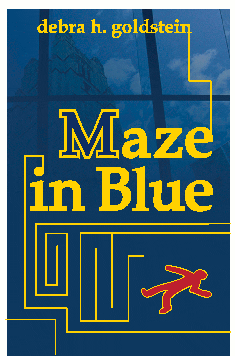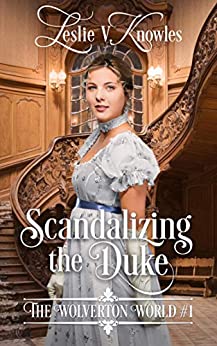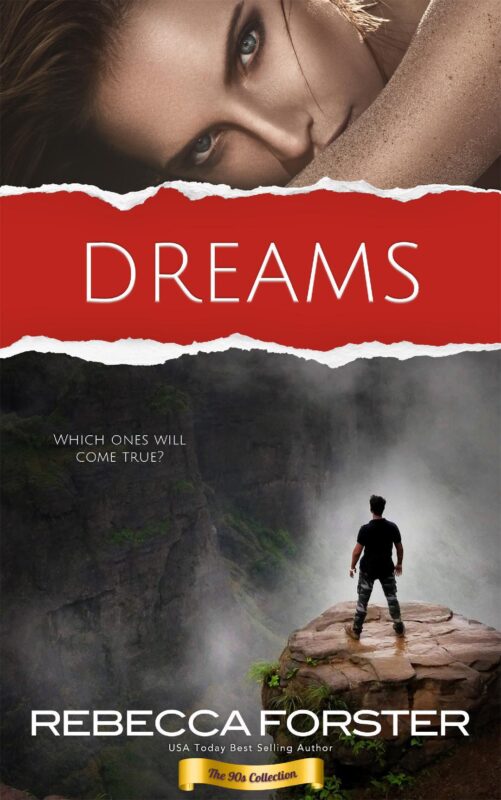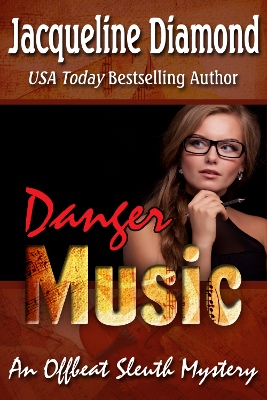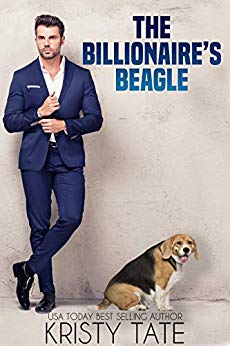Options
February 10, 2025 by Tari Jewett in category Writing tagged as indie publishing, pay to publish, publishing, traditional publishing, writingAs writers, we’re living in such an interesting time. There are more opportunities to publish our work, than ever before. But, because of this there’s also more competition in the marketplace, and there’s more opportunity to be taken advantage of, so it’s important to educate ourselves.
I wanted to talk about the three best known ways to publish, traditional publishing, pay to publish, and indie publishing.
Traditional publishing
This used to be the dream of nearly every book author, and still is for many. To find a traditional publisher, preferably one of The Big Five, New York publishers to buy your work and publish it for you. There weren’t many publishing options, and this was the way.
Authors would submit their work, sometimes to the few publishers that would take unsolicited work from unpublished, unrepresented authors. It would end up in a slush pile, where the author hoped it would catch the eye of an editor, or maybe junior editor, who would send the book up the chain of command until the author either received an acceptance, a rejection with notes, or the hardest one to take, a form rejection. Did I say all of that past tense? This is still a valid way to submit your work.
Along the same lines, an author can (and could previously) submit their work to an agent, who would then submit the book to editors looking for this type of work. Having an agent gives/gave you a little more of an edge in the game.
There have always been smaller presses and boutique publishers to submit your work to for traditional publishing.
When you traditionally publish, you don’t pay money to publish your work. You sign a contract giving rights to your work to the publisher. They provide an editor, a cover, price and distribute your book. In general, you’ll still do your own marketing, although some publishers help with this. You’ll receive royalties on your book sales. Depending on the publisher, you’ll have less input into your cover, and the editing of your book. The publisher is in control until you get your rights back.
Pay to Publish
Depending on your goals, pay to publish, often called vanity press publishing, has been an option for a very long time. Pay to publish is exactly what it says. You pay the publisher based on a package you purchase. You may or may not give up rights to the publisher. They choose the editor and generally the cover for you. Sometimes they also take a percentage of your book sales and pay you royalties, even though you’ve paid up front.
If you choose to publish this way, you need to do your due diligence. There are both reputable and not so reputable publishers out there, so it’s important to do your research and be sure that you’ll be happy with the outcome.
Indie Publishing/ Self-Publishing
I tend to call it indie publishing or independent publishing, because well, back in the day Pay to Publish, was often called self-publishing. But since the advent of e-publishing, self-publishing…or indie publishing is a different way to publish. You write the book. You hire an editor. You create or pay for a book cover. You format…or have the book formatted. You distribute to book retailers of your choice. You do all of the marketing. You become not just an author, but a publisher.
Indie publishing is a lot of work, but you make all of the money and have total control of your product.
Which way is the best way to publish your work? I think it depends on your goals, what you write, and sometimes who your reader is. Personally, I’m a hybrid author. My last book, Love and Mud Puddles was published with The Wild Rose Press, and I love my publisher, and hope to publish more books with them. I also indie published my series #HermosaForTheHolidays, and plan on continuing to indie publish. I’ve learned so much about my writing process, publishing, and professionalism through both experiences.

Having choices gives us more opportunity, but it also means more responsibility and more decisions.
Are you a published author? What paths have you taken on your journey and what have you learned from them? If you’re not yet published, do you know which way you want to go and why?
0 0 Read moreSomething to Think About
May 15, 2020 by Rebecca Forster in category Writing tagged as coronavirus, e-readers, indie authors, indie publishing, inspiration, readers, writing, writing craft, writing life
Last night all I could think about was the deadline for this blog post. I had put it off all month. At the last minute I was hoping to write something inspirational for both readers and writers. While hope springs eternal, I found myself pondering – and pondering – what that perfect message should be.
If I’m going to be honest, I knew I wouldn’t come up with anything substantial because I have been distracted. When I’m distracted I usually sit down with a friend at a coffee shop and hash out whatever is on my mind until I’m back on track. Since I can’t do that you’re ‘it’, my friends in a virtual coffee shop. I’ll tell you what I’ve been doing while I’ve been locked down and pondering this post. We’ll start with the garden and move on from there.
Tomato plants. I haven’t actually thought about the tomatoes as much as I have been checking on them. Going outside every fifteen minutes is a nice break from staring at my blank computer screen or at my husband napping on the couch. No matter how often I check, though, the tomatoes still have not turned red and my husband still has not gone back to work.
My fabric stash. Over the last eight weeks I have knocked it down some. Here’s the count: five blouses, a quilt top, a fully-lined summer suit (1 dress that would have fit 15 years ago when I was 25 pounds lighter), and ten face masks. Here’s my question: is sewing my stash like a tree falling in the forest or is it like ‘build it and they will come’? I think it’s the latter. When the day comes to have dinner in a restaurant I will have lots to wear.

Work. Honestly, my brain has been mush when it comes to writing a new book. I have an idea but I couldn’t get it to gel, so I looked through my files and reread some of my early work. I had so much fun that I edited and published five novels from the 90s. I also published The Death of Me, a novella I wrote that morphed into a novel (Before Her Eyes). These two works are as different as they are similar. Some times pondering one thing will lead to another. The trick is not to ignore the ‘other’. Productivity: mission accomplished.
Finally, I’ve been pondering important things: the individual versus the greater good, the constitution and ‘guidelines’ as our lockdown stretches into yet another week, another month, another century. My heart is sad for those who are sick and who have died; my heart is breaking for my relatives and friends who are losing their livelihood, home and, well, everything they have worked hard for. I won’t tell you which side I’m on when it comes to hunkering down or opening up. I will only say that I realize that what I have been pondering all along is something readers and writers have always been inspired by: story. No matter what road we choose there will be stories at the end of it. We are writing them now.
These will be tales of tragedy and triumph; there will be something to laugh at and something to cry over. We will all see these events – and each other – differently. Eventually there will come a time when we put pondering aside so that we can sit with friends at a coffee shop, tell our stories, and hug each other when all is said and done.
Mom & Son Inc.
June 9, 2019 by Tari Jewett in category Charmed Writer by Tari Lynn Jewett tagged as 1st books, book covers, indie publishing, sons

Hermosa Promenade
When our children are small, I think most of us fantasize about who they’ll be when they grow up. What they’ll look like, will they look like you? Or be entirely their own person? What kind of personality will they have? Will they be funny? Smart? Laid back or driven?
It’s the same with writing. When I start a story I wonder what it will look like when it’s done? What will the reader see? Will my intention come across? After all, our stories are our babies too!
Well, I’ve had the incredible, and unexpected experience of combining those two things. I’ve been working on books with my oldest son, Gerrod. I’m writing them, and he’s doing the artwork for the covers.

Hermosa Beach Clock
As you know, my first book, #PleaseSayYes, released last year in a boxed set. And I loved the cover. I thought it was adorable. But, when I got my rights back, and released it this February by itself, I wanted a new cover. I wanted something that said, not just romantic comedy, but Hermosa Beach romcom. I wanted something custom. But I couldn’t justify the expense.
And then Gerrod, my oldest son, approached me. He’s gone back to school, for digital graphic design, and asked if he could have a shot at my book covers. I was surprised, because I know my books aren’t the kind of thing he reads, and it’s not the kind of artwork he would normally choose to do, but I was also  thrilled at the opportunity to work on a creative project with my son.
thrilled at the opportunity to work on a creative project with my son.
I also knew that being creative means not just doing what you want to do, what you know best, but stretching yourself into other areas. I wrote advertising and press releases for car products, television commercials for water purification companies, and so many other writing projects that had nothing to do with me, but that required creativity and artistic skill.
We are however both new to this, and learning together could be a good thing or a bad thing. I didn’t want my writing project to cause friction between us.
So, of course, we dove into this project head first.
I gave Gerrod some photos of Hermosa Beach, and sent samples of other romcom covers that I liked, in order to give him an idea of where I wanted to go. He used what I’d given him to digitally hand draw sample scenes for me. It was rough at first, and more than a couple of times when the stress of the project, a death in the family, and other things got in the way I wanted to walk away. I’m sure he considered it as well, although regardless of what happened, he stayed on track, worked with me, and tried to give me what I wanted.
We argued about a few details here and there, but generally he agreed it was my book, and he did whatever it took. EXCEPT for when it came to my name. He felt that my handwriting was unique in itself and  should go on the book. I, disagreed, and on this issue he dug in. Eventually, I relented, and the more I saw it on the cover, the more I liked it. (You can tell me what you think.)
should go on the book. I, disagreed, and on this issue he dug in. Eventually, I relented, and the more I saw it on the cover, the more I liked it. (You can tell me what you think.)
But ultimately, I had the last say, I wanted him to sign his work. I was thrilled with the final product. On the post in the bottom right hand corner, you’ll see GGG. Those are Gerrod’s initials. They’re also on the back, bottom right hand corner by the helicopter!
Once book one was done, book 2, which will be released in just a few weeks, and book 3 coming in October, were a breeze to complete! I’m not supposed to share yet, but I just can’t help myself! I hope you like the cover for #FireworksintheFog as much as I do! But, you’ll have to wait to see book 3, Haunted Hermosa.
Bottom line, proud mama moment, and so thrilled to be sharing this experience with my son. We’re learning about the process together, and learning to work together as two artists, not mother and son.
So, they grow up, and become their own people, and sometimes, if you’re very lucky, who they are as an individual, and who you are as an individual are able to find a common ground, a special place that the two of you can share.
7 0 Read more
Does the Extra Squeeze Team Think an Author Can Be Published both Traditionally and Indie?
October 31, 2017 by The Extra Squeeze in category The Extra Squeeze by The Extra Squeeze Team tagged as Hybrid Publishing, indie publishing, traditional publishing, Writing Advice
Does the Extra Squeeze Team Think an Author Can Be Published both Traditionally and Indie?
I’m a traditionally published author and I have several ideas that I would like to publish independently. Will my publisher be upset? Can an author really be published both traditionally and independently?
[tweetshare tweet=”Can an author really be published both traditionally and independently?” username=”A_SliceofOrange”]

Rebecca Forster
USA Today Bestselling author of 35 books, including the Witness series and the new Finn O’Brien series.
Like so many other authors, I walked a fine line for years as I tried to create a viable writing career while not upsetting the publishing apple cart. I knew there were fifty worthy authors out there waiting to take my place on the list if I made waves with my agent or publisher. The majority of writers in the last many years were playing real-life Chutes and Ladders and more than likely we were all going to end up at the bottom of a chute.
I made a decision not to continue pursing a traditional career when I submitted a book that I believed would take my work to a new level. It was rejected by any number of publishers. They didn’t want to take a chance, and I couldn’t blame them. If they published a book that was not what my reader’s had come to expect, they might not make back the investment they had made in me. Coming from a business background, I understood that editing, cover design, distribution, sales, and returns could all be translated to a line item on the publisher’s balance sheet.
Realizing that distribution channels were tightening up, wanting to explore how far I could take my craft, I published that book on my own. Happily, I found the editors were wrong. Readers bought it, liked it and understood it. I went on to republish and expand a series that the publisher believed had run its course. The first book has had over 4 million downloads, and the series has over seven thousand reviews.
Today, the chutes remain the same but there is more than one ladder to climb, and an author’s fate is in her (or his) hands.
So here are my answers to your questions, and a little advice. First my answers.
Yes, it is possible to publish both traditionally and independently. I’ve met many authors who have had great success as hybrids.
Your editor will be upset only if you don’t pursue hybrid publishing in a professional manner. If the editor has turned down your ideas, then you are free to pursue other avenues. If you are contractually bound to first right of refusal with your publisher, then show them your new ideas and make your decision after you hear what the editor has to say.
[tweetshare tweet=”Traditional or Indie: Advice from @Rebecca_Forster” username=”A_SliceofOrange”]
And now for the advice:
Treat both your traditional and independent publishing with the same professionalism. Your readers won’t change; they will still expect good writing, an excellent story, and a well-produced book.
When marketing, use your traditional success to bolster your independent publishing, use your independent success to bolster your traditional work. This is a win/win for the hybrid author.
So go for it. Execute those ideas that may not be in the mainstream. Be bold; be brave. Publishing is exciting, scary, full of choices and marvelous no matter which road you take.

Jenny Jensen
Developmental editor who has worked for twenty plus years with new and established authors of both fiction and non-fiction, traditional and indie.
Not being an expert on the publishing industry I’m certain I don’t have an expert response, but I do know there are a lot of hybrid authors. A quick Google search reveals a ton of articles on the pros and cons of hybrid publishing — mostly pros. Traditionally published writers who go indie, and vice versa, often find having a stake in both worlds to be a lucrative model. If there isn’t an existing contract with a publisher, what’s there to be mad about? Indie is a fabulous opportunity.
[tweetshare tweet=”Editor Jenny Jensen Traditional vs Indie: The Indie option makes the issue of quality even more critical.” username=”A_SliceofOrange”]
What I am certain of is the Indie option makes the issue of quality even more critical than in pre-digital days. All work that leaves your hands, all work with your name on it must be the best it can be. For a traditional publisher you have to offer the best work you possibly can if you want to even be considered for publication. But traditional publishers have the back up of a slew of editors who expect to work with a compelling manuscript to make it the best they feel it can be. Your work simply has to be so good it merits a publisher’s investment. That bar is set pretty high. A good freelance editor will improve your odds of clearing it.
An Indie writer has only the back up she invests in her work. If you release a poorly edited book, regardless of how exciting the premise is, or how charming your characters or how riveting your action, you lose readers and the credibility of your name — you lose your opportunity. An Indie author must themself invest all the necessary effort and services offered by a publishing house. The return on that investment is success, creative control and much juicier royalties.
I edit each of my clients as if their work were going to the Nobel committee. The goal is to make a perfectly crafted story that can measure up to both a Random House editor and all those discerning readers downloading to their devices. That should be every writer’s goal — traditional or Indie. The services of an editor are a part of achieving that.

Ever wonder what industry professionals think about the issues that can really impact our careers? Each month The Extra Squeeze features a fresh topic related to books and publishing.
Amazon mover and shaker Rebecca Forster and her handpicked team of book professionals offer frank responses from the POV of each of their specialties — Writing, Editing, PR/Biz Development, and Cover Design.
Robin Blakely
PR/Business Development coach for writers and artists; CEO, Creative Center of America; member, Forbes Coaches Council.
Frankly, who cares if your publisher is upset?
Of course, as a PR professional, I love to make sure there is harmony amongst the people, that protocol is maintained, and that diplomacy is the hallmark of all relationships.
But here is the reality: it is tough being a professional writer. You have a right to make a living as a writer in a world that often does not value your talent appropriately.
[tweetshare tweet=”@RobinBlakely says: Please think of your writing career as a business.” username=”A_SliceofOrange”]
If your publisher wants to throttle your ability to earn an income, I would be very concerned about working with that publisher. Anytime there is oppression, fear, or a sense that you must go out of your way to manage your publisher’s emotional state, walk away. Being told how and when and what to do—and not do–with your career is suffocating. You can do better. It is possible to publish traditionally and independently simultaneously and create a promotional strategy that allows both profit streams to flourish.
Please think of your career as a business. You are the brand. The publisher is a business partner. If you are kept in the dark or restricted from succeeding, what kind of partnership does that make? Not one that is good enough for you.
If only I were published traditionally, I would have a better answer to this!
I do know of another fantasy author who has done both. He started off as self-published and then signed over some of his books to a big-name house. In that situation, both parties were winners. He gained more publicity, and they knew they were supporting a writer who was already popular (and could therefore make money from him).
If it’s the other way around, I’m not so sure. They may be spending ££££ on your PR, so might not appreciate it if (as a ludicrous example) they had built and sold an image of you as a sweet, softy romance author, and then you went and published a treatise on the pros of Nazism. I guess that’s the question to ask: “Will my publishing independently cause a loss on their investment in me?”
[tweetshare tweet=”H.O. Charles: Will your publishing independently cause a loss on your publishers investment?” ” username=”A_SliceofOrange”]
Indie Doesn’t Mean Independent
January 15, 2017 by Rebecca Forster in category The Write Life by Rebecca Forster, Writing: It's a Business tagged as indie publishing, Rebecca Forster. writing Just before Christmas, a new author asked me how she might get more exposure. I’m sure she was waiting for some social media insights or advertising suggestions. Instead, I introduced her to Marianne Donley, one of my first writing friends.
Just before Christmas, a new author asked me how she might get more exposure. I’m sure she was waiting for some social media insights or advertising suggestions. Instead, I introduced her to Marianne Donley, one of my first writing friends.0 0 Read more
Affiliate Links
A Slice of Orange is an affiliate with some of the booksellers listed on this website, including Barnes & Nobel, Books A Million, iBooks, Kobo, and Smashwords. This means A Slice of Orange may earn a small advertising fee from sales made through the links used on this website. There are reminders of these affiliate links on the pages for individual books.
Search A Slice of Orange
Find a Column
Archives
Featured Books
SCANDALIZING THE DUKE
So far as the Duke of Wolveton is concerned, Charlotte Longborough is a scandal waiting to happen.
More info →
DANGER MUSIC
Her quirky assignment: solve a famous cold-case mystery for a magazine article. Then the killer reawakens.
More info →Newsletter
Contributing Authors
Search A Slice of Orange
Find a Column
Archives
Authors in the Bookstore
- A. E. Decker
- A. J. Scudiere
- A.J. Sidransky
- Abby Collette
- Alanna Lucus
- Albert Marrin
- Alice Duncan
- Alina K. Field
- Alison Green Myers
- Andi Lawrencovna
- Andrew C Raiford
- Angela Pryce
- Aviva Vaughn
- Barbara Ankrum
- Bethlehem Writers Group, LLC
- Carol L. Wright
- Celeste Barclay
- Christina Alexandra
- Christopher D. Ochs
- Claire Davon
- Claire Naden
- Courtnee Turner Hoyle
- Courtney Annicchiarico
- D. Lieber
- Daniel V. Meier Jr.
- Debra Dixon
- Debra H. Goldstein
- Debra Holland
- Dee Ann Palmer
- Denise M. Colby
- Diane Benefiel
- Diane Sismour
- Dianna Sinovic
- DT Krippene
- E.B. Dawson
- Emilie Dallaire
- Emily Brightwell
- Emily PW Murphy
- Fae Rowen
- Faith L. Justice
- Frances Amati
- Geralyn Corcillo
- Glynnis Campbell
- Greg Jolley
- H. O. Charles
- Jaclyn Roché
- Jacqueline Diamond
- Janet Lynn and Will Zeilinger
- Jaya Mehta
- Jeff Baird
- Jenna Barwin
- Jenne Kern
- Jennifer D. Bokal
- Jennifer Lyon
- Jerome W. McFadden
- Jill Piscitello
- Jina Bacarr
- Jo A. Hiestand
- Jodi Bogert
- Jolina Petersheim
- Jonathan Maberry
- Joy Allyson
- Judy Duarte
- Justin Murphy
- Justine Davis
- Kat Martin
- Kidd Wadsworth
- Kitty Bucholtz
- Kristy Tate
- Larry Deibert
- Larry Hamilton
- Laura Drake
- Laurie Stevens
- Leslie Knowles
- Li-Ying Lundquist
- Linda Carroll-Bradd
- Linda Lappin
- Linda McLaughlin
- Linda O. Johnston
- Lisa Preston
- Lolo Paige
- Loran Holt
- Lynette M. Burrows
- Lyssa Kay Adams
- Madeline Ash
- Margarita Engle
- Marguerite Quantaine
- Marianne H. Donley
- Mary Castillo
- Maureen Klovers
- Megan Haskell
- Melanie Waterbury
- Melisa Rivero
- Melissa Chambers
- Melodie Winawer
- Meriam Wilhelm
- Mikel J. Wilson
- Mindy Neff
- Monica McCabe
- Nancy Brashear
- Neetu Malik
- Nikki Prince
- Once Upon Anthologies
- Paula Gail Benson
- Penny Reid
- Peter Barbour
- Priscilla Oliveras
- R. H. Kohno
- Rachel Hailey
- Ralph Hieb
- Ramcy Diek
- Ransom Stephens
- Rebecca Forster
- Renae Wrich
- Roxy Matthews
- Ryder Hunte Clancy
- Sally Paradysz
- Sheila Colón-Bagley
- Simone de Muñoz
- Sophie Barnes
- Susan Kaye Quinn
- Susan Lynn Meyer
- Susan Squires
- T. D. Fox
- Tara C. Allred
- Tara Lain
- Tari Lynn Jewett
- Terri Osburn
- Tracy Reed
- Vera Jane Cook
- Vicki Crum
- Writing Something Romantic
Affiliate Links
A Slice of Orange is an affiliate with some of the booksellers listed on this website, including Barnes & Nobel, Books A Million, iBooks, Kobo, and Smashwords. This means A Slice of Orange may earn a small advertising fee from sales made through the links used on this website. There are reminders of these affiliate links on the pages for individual books.









